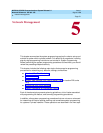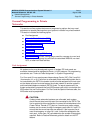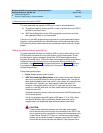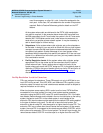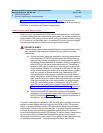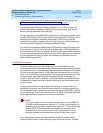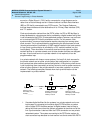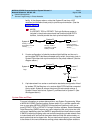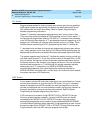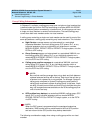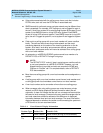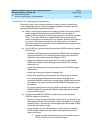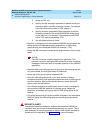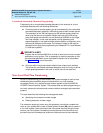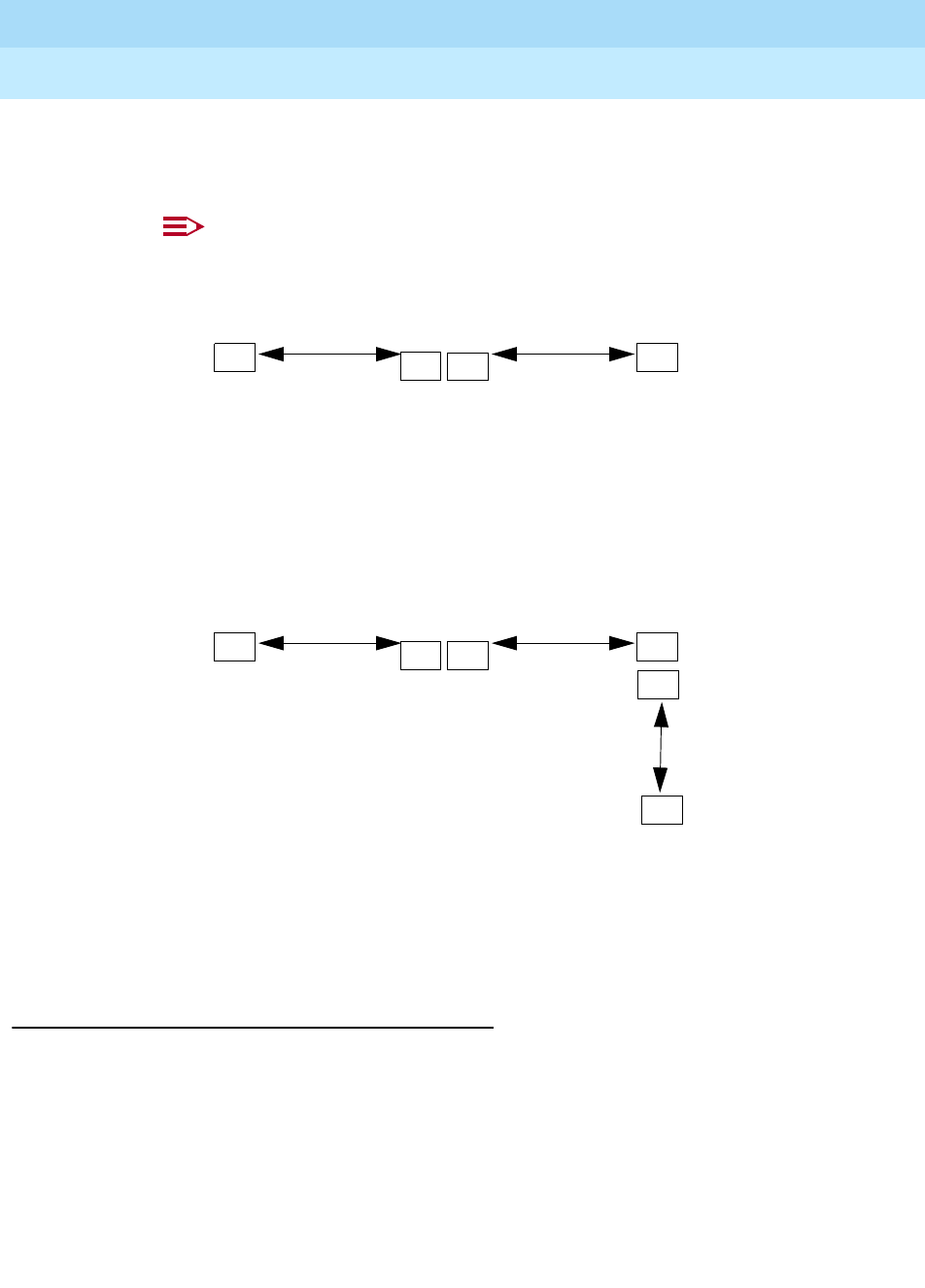
MERLIN LEGEND Communications System Release 6.1
Network Reference
555-661-150
Issue 1
August 1998
Network Management
Page 5-8General Programming in Private Networks
5
facility. In the diagram above, notice that System B has three 100D
modules (and therefore three ports) to provide synchronization. (See the
diagram above.)
NOTE:
If a DEFINITY ECS or DEFINITY ProLogix Solutions system is
included in the private network and has functional digital PSTN
facilities, it should provide the clock synchronization source.
2. If a star configuration is linked by tandem digital facilities and has no in-
service digital PSTN facilities connected to any switch, the primary clock in
System B provides clock synchronization for the private network. (See the
diagram above.)
3. A private network in a series or combination star/series configuration linked
by tandem PRI facilities has no in-service digital PSTN facilities connected
to any switch. System B acts as the primary private network source. If
System B has a total failure, System C provides clock to System D
.
(See
the diagram above.)
System Date and Time 5
For more information on system date and time, see
System Programming.
When
a MERLIN LEGEND Communications System switch is in a private network with
one or more other MERLIN LEGEND Communications Systems or with one or
more DEFINITY ECS or DEFINITY ProLogix Solutions systems, Station Message
Detail Recording (SMDR) reports may report outgoing calls using more than one
call record, depending upon how SMDR is programmed and how calls are routed.
If SMDR is reporting outgoing calls and users are employing private network lines
to make these calls, ensure that the system date and time are set accurately on
each system that carries these calls. As you examine call reports, you may need
to be aware of time zone differences among private networked system locations.
System A System C
System B
tandem
PRI
tandem
PRI
100D
100D 100D
100D
Primary: Loop B
Secondary: Local B
Tertiary: ______
Primary: Local A
Secondary: Local B
Tertiary: Loop B
Primary: Loop B
Secondary: Local B
Tertiary: _____
System A System C
System B
tandem
PRI
tandem
PRI
100D
100D 100D
100D
loop local loop
100D
System D
loop
100D
tandem
PRI




